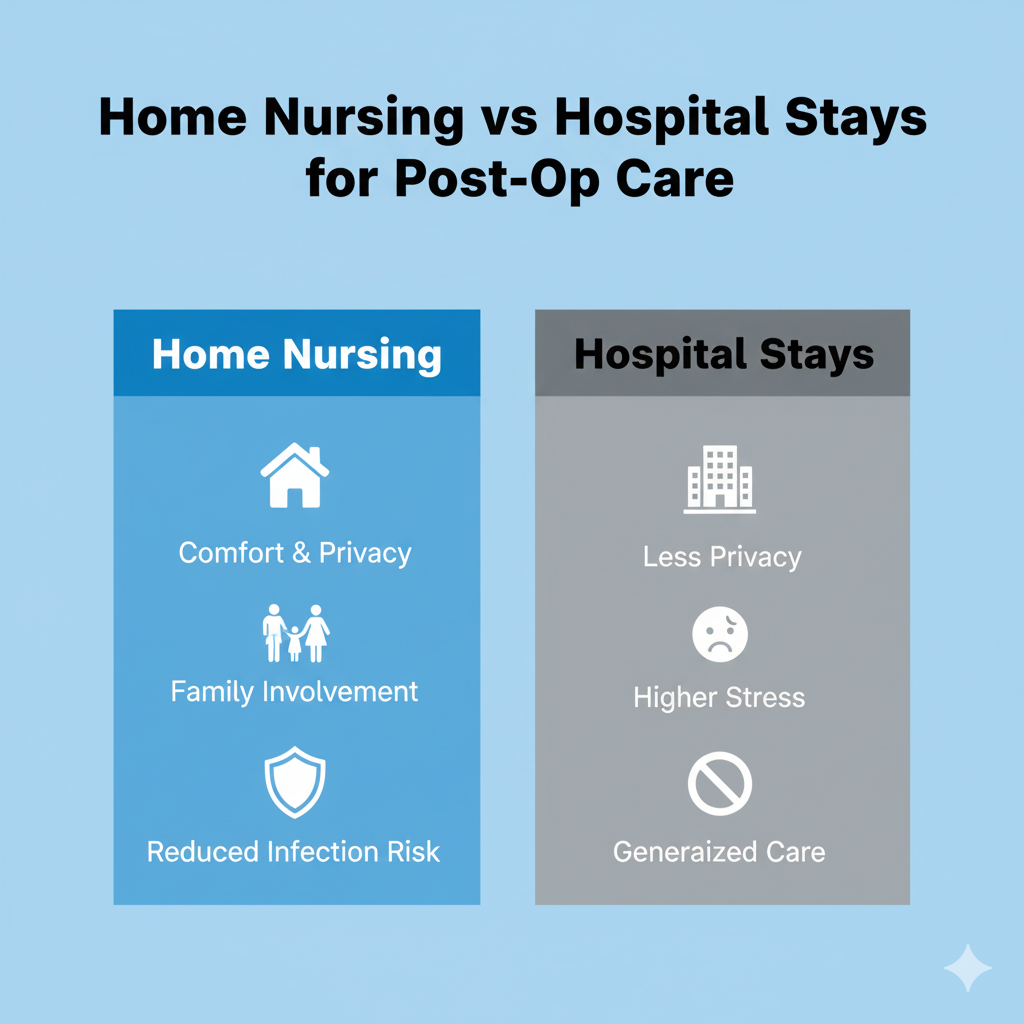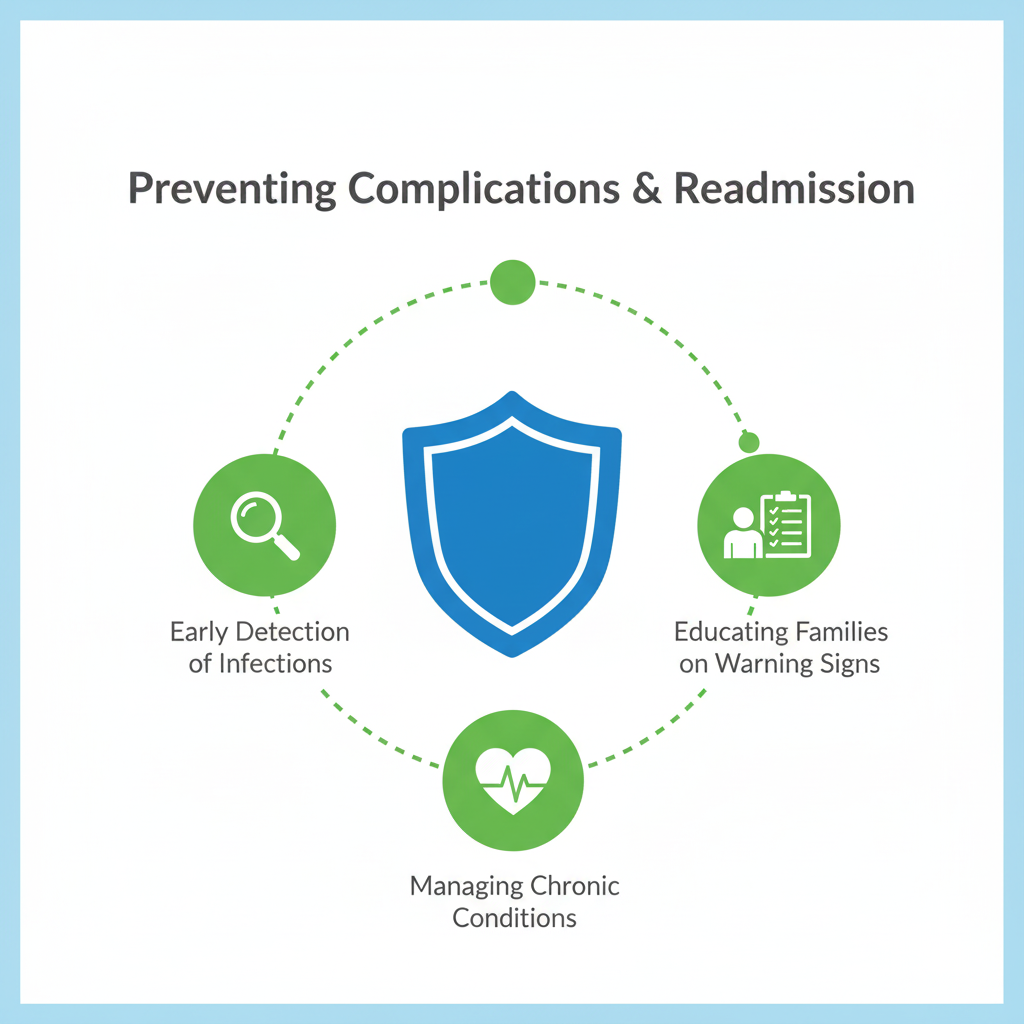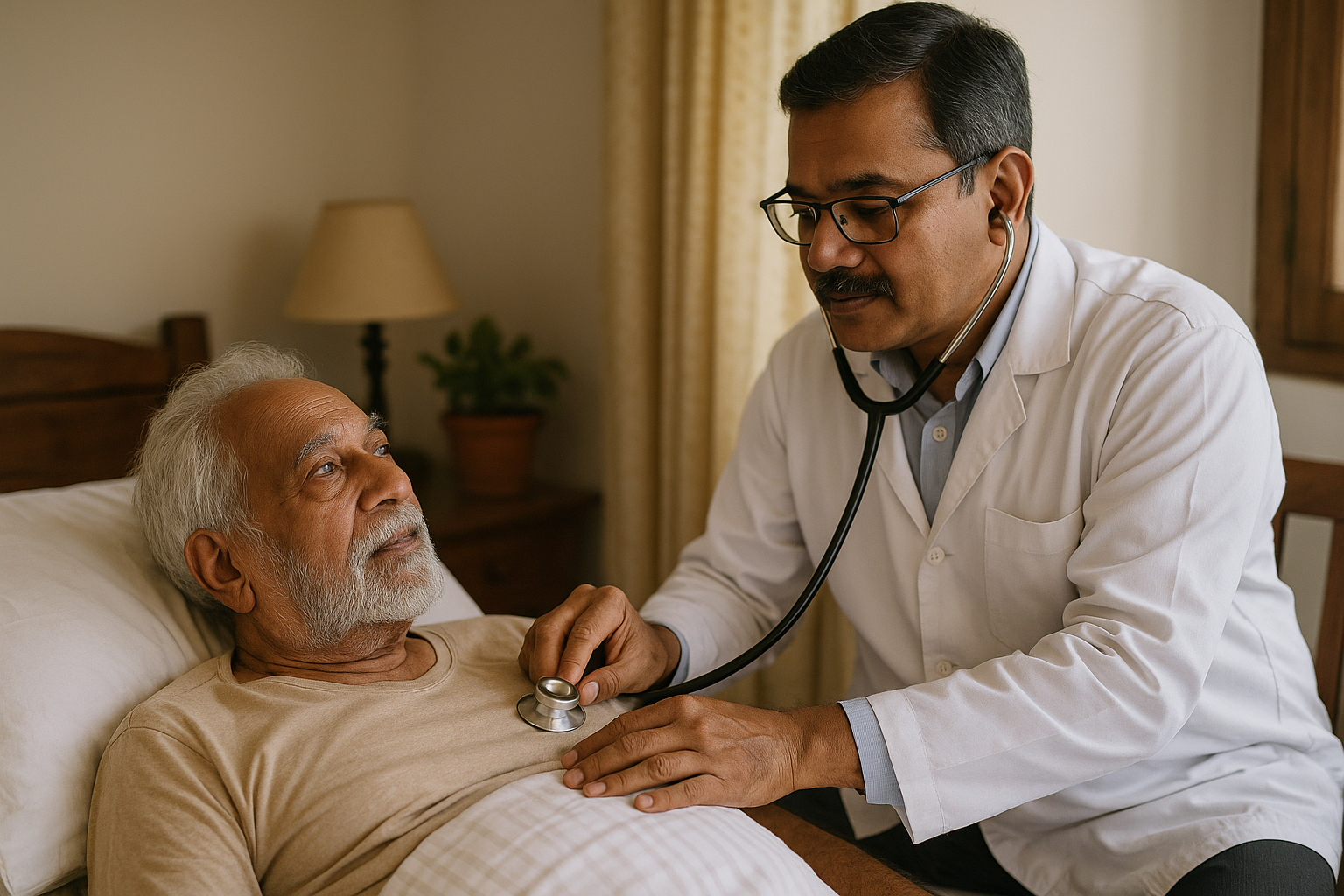Healing after surgery is a big step. You want to get better, but also stay safe and comfortable at home. Dr. Morepen Home gives families help right where they live. Trained nurses come to your door. They help you get stronger while caring for your comfort and health. Finding the right care at home can make healing faster and worry smaller.
The Value of Choosing Home Nursing After Surgery
There is relief in coming home after a hospital stay. Houses feel safe. Trusted people are nearby. Dr. Morepen Home offers nurses who share your language and know your needs. This makes the shift from hospital to home less stressful.
Smooth Transition from Hospital to Home
Nurses guide each step as the hospital stay ends. They help set up the bed, check medicine boxes, and watch for problems. Even tasks like keeping sheets clean or setting reminders are easier with help.
- Clean the patient’s room before discharge
- Remove any rugs or wires that could trip someone
- Place night lights near the bed and bathroom
Comparing Home Nursing vs. Hospital Stays for Post Op Care

Less privacyLower risk at home
nurses focus only on your patient. Family feels more included.
Involving Families in the Plan
Family is treated as a team. Nurses explain every detail, answer “what if” questions, and support their role while showing how to give care safely.
Critical Services Provided by Home Nurses
A good home nurse does more than just check wounds. They care for mind and body.
Wound & Incision Care
Nurses check each cut or stitch for redness, swelling, or pus. Dressings are changed with careful hands. Cleanliness is the rule.

Pain Management Techniques at Home
Pain slows every step. Nurses help by:
- Giving medicines on time
- Watching for side effects
- Using simple tricks such as a warm cloth or deep breathing
Medication Supervision and Adherence
It is easy to miss a dose. Nurses keep records, share lists with families, and explain what each medicine does.
- Set alarms for doses
- Store pills in clear boxes
- Mark when each dose is given
Support with Daily Living and Mobility
Small steps matter. Healing also means eating, bathing, and moving again with care.
Assistance with Bathing, Dressing, Nutrition
Staying clean feels good and stops infection. Nurses help with baths, dressing, and grooming. For food, they suggest soft meals and every meal is checked for energy and vitamins.

Mobility Support: Preventing Falls & Promoting Movement
Simple moves each day mean faster strength. Nurses guide slow walks, check for dizziness, and help use walkers or canes. They never rush.
Monitoring Vital Signs (Blood Pressure, Temperature, Heart Rate)
What looks like a small fever may need fast help. Nurses check numbers every visit. Any change is noted and shared with your doctor right away.
Physical Therapy, Exercise, and Rehabilitation at Home
Getting up after surgery takes time. Every patient moves at their own pace.
Coordinating with Physical Therapists
Nurses talk with physiotherapists to set safe steps and schedule visits. Both teams work as one.
Safe Exercises for Different Surgery Types
Not all moves fit all bodies. Nurses and therapists show the best exercises, whether for leg, back, or heart surgery. Movements are gentle and repeated often.
Progress Tracking & Goal Setting
Small wins get noted - sitting up longer, walking extra steps, standing with less help. Nurses and family cheer every little goal met.
Emotional and Mental Health Support
Body and mind both need care.
Providing Companionship and Reducing Isolation
A friendly word or a simple story can cheer up the patient. Nurses give company and listen without hurry.
Encouraging Motivation Through Recovery Challenges
Healing feels slow sometimes. Nurses support new tries, remind you of your wins, and help you not to give up.
Addressing Post Operative Anxiety or Depression
Nurses notice when someone feels low or upset. They share these changes with family and suggest seeing a counselor if needed.
Preventing Complications and Hospital Readmission
Recovery after surgery can sometimes face bumps. A home nurse from Dr. Morepen Home is trained to notice and address problems before they get serious.

Early Detection of Infections or Setbacks
- Redness or swelling around wounds
- Sudden pain or high fever
- Changes in breathing or confusion
If anything seems off, the nurse quickly contacts the doctor or guides the family on the next best steps. Fast action helps prevent bigger problems.
Managing Chronic Conditions During Recovery
For patients with diabetes, high blood pressure, or heart concerns, balancing everyday health is key. Nurses check sugar levels, remind about daily pills, and watch for changes in pulse or mood.
Educating Families About Warning Signs
Dr. Morepen Home nurses make sure family members know what to watch for. They explain when to call for help and give written checklists for easy reference. Support at home means fewer return trips to the hospital.
Nutrition, Hydration, and Healthy Habits for Recovery
Strong bodies heal faster. The right food, plenty of water, and good sleep all matter.
Role of Proper Diet Post-Surgery
Nurses suggest small, high-protein meals, easy to chew and gentle on the stomach. If a dietician is needed, a plan can be made together.
- Include lots of vegetables, fruits, and pulses
- Avoid very spicy or oily foods
- Focus on clean water and fresh juices
Coordinating With Dietitians if Needed
Special cases may need a custom diet. Nurses work with experts who create eating plans based on the surgery and health background.
Encouraging Hydration & Rest
Drinking enough water is just as key as eating well. Nurses remind patients to sip water often and build in extra breaks for rest.
Trust is essential. Dr. Morepen Home knows families want only the best for loved ones.
Always check that your nurse is certified, has handled similar cases before, and speaks a language you are comfortable with.
Questions to Ask Before Hiring
How many years of experience do you have?
Can you provide references or reviews?
Verifying Background and Reliability
Ask for background checks, identity proof, and clear information on shift timings and agency support in emergencies.
Family Involvement and Support
Healing is easier when everyone knows their role.

Educating Family Caregivers for Home Recovery
Nurses show families hands-on tips:
- How to clean wounds safely
- Proper ways to help with walking or exercises
- Reminders on medicine dos and don’ts
Setting Boundaries and Realistic Roles
It’s important for families to take care of themselves too. Nurses help define who does what and when to rest.
When to Seek Additional Professional Help
If things feel overwhelming or there’s a sudden health change, families are encouraged to ask for extra nurse support or a physiotherapist.
Specialized Post Operative Care Scenarios
Some patients need special attention due to age or health history.
Pediatric Post Op Home Care Needs
Children need gentle care, short exercises, and lots of encouragement. Nurses use toys or games to keep care fun and light.
Elderly & Geriatric Surgical Recovery
Older adults recover better in familiar places. Nurses take extra care with balance and memory support, making notes for family to track changes.
Orthopedic, Cardiac, and Cancer Surgery Patients
Each case gets its own set of routines—extra wound checks for cancer surgery, daily exercise for orthopedic cases, or close heart rate watching after cardiac surgery.
Technology and Tools Enhancing Home Nursing
Today, simple gadgets and services support patients even more.
Digital Health Monitoring Devices at Home
Devices like BP monitors, glucose meters, and oxygen sensors let families see numbers at home and share them with doctors.
Telehealth Consultations with Doctors
Video calls save trips to clinics. Patients and families can speak to specialists from the living room.
Apps and Platforms for Progress Tracking
Many agencies, including Dr. Morepen Home, offer secure mobile apps to log medicines, track vital signs, and receive reminders.
Recovery Stories: Real Patient Experiences
Hearing from others helps. Patients and families often share how home nursing made the recovery journey peaceful and secure. These stories bring hope and practical advice for new patients.
Frequently Asked Questions (FAQ)
1 What services are included?
Wound care, medication help, pain management, physiotherapy coordination, and emotional support are standard.
2 How long is a nurse’s stay needed?
It depends—some need only a week, while others may need a month or more.
3 When should we call a doctor?
Unusual pain, fever, heavy bleeding, or trouble breathing means you need help quickly.
4 Is care available round the clock?
Most agencies offer day and night visits. Emergency support is available as needed.
.png)


.png)
.png)
.png)
.png)
.png)
.png)
.png)
.png)
.png)
.png)
.png)
.png)
.png)
.png)
.png)
.png)
.png)
.png)
.png)
.png)
.png)


.png)
.png)
.png)
.png)
.png)
.png)
.png)

.png)
.png)
.png)

.png)
.png)
.png)
.png)
.png)
.png)

.png)
.png)

.png)
.png)
.png)

.png)

.png)


.png)







